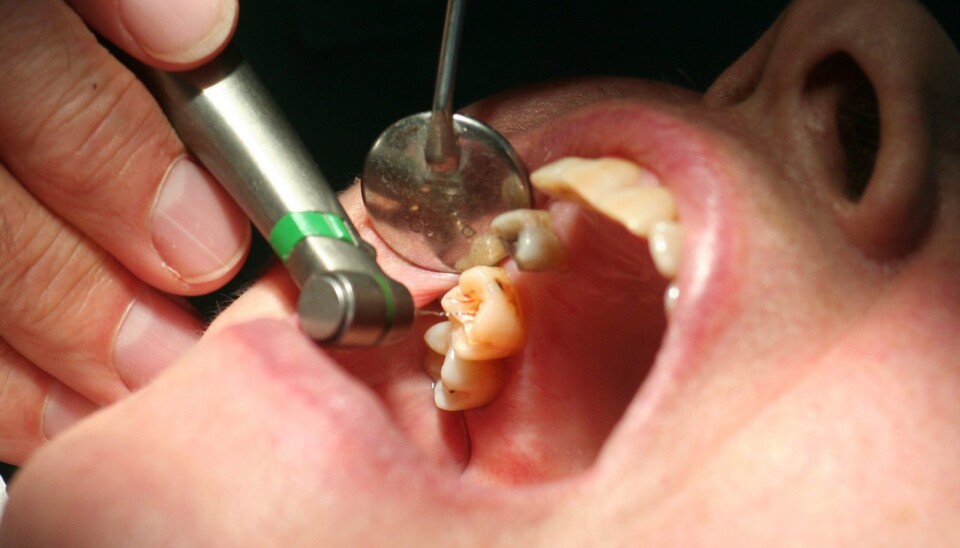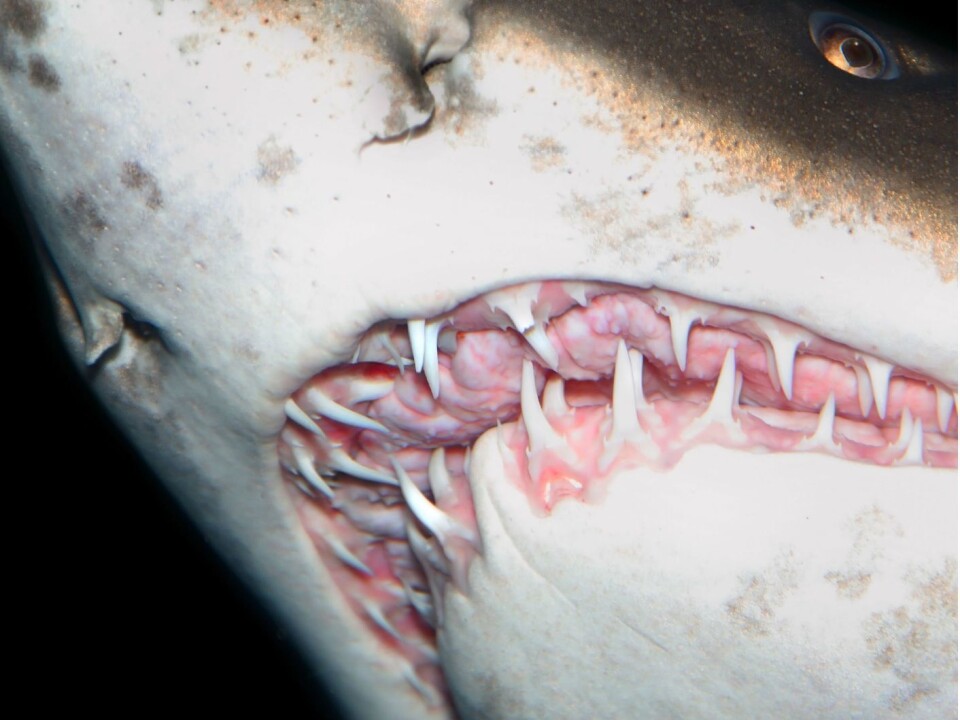
Why don’t teeth heal themselves?
Teeth heal themselves to a certain extent. But due to a lack of the right cells they have no chance against visible caries.
Denne artikkelen er over ti år gammel og kan inneholde utdatert informasjon.
Most of us have trudged reluctantly to a dentist’s office with the unpleasant sound of a drill on our minds.
That brings up the question: Why haven’t our teeth learned to heal themselves after millions of years of evolution, like the rest of our body?
No cells, no healing
“Cells are what start the healing process in our bodies, and as tooth enamel consists of 90 percent minerals, there aren’t many proteins and cells there,” explains Janne Reseland, a professor of biomaterials at the University of Oslo (UiO).

She explains that at the base of the roots of our teeth we have cells that can provide a certain amount of repair, but not up in the crowns.
This leaves a large section of teeth's surface area highly sensitive to the environment – what we breathe and what we eat and drink.
Hammering in new teeth
Nature only provides us with two sets of teeth. First our baby teeth, which are then exchanged for a set that is supposed to last a lifetime.

Reseland says plenty of cunning methods have cropped up through the ages to replace missing teeth:
“In Ancient Rome they hammered in metal implants, which must have been painful."
She’s at a loss to say if the point of departure for such agonising treatment was the extraction of teeth or their simply falling out, or whether the metal was tapped in for aesthetic or simply practical reasons.
A shark’s sneaky advantage
Sharks don’t need any such treatment. If they lose a tooth, a new one soon takes its place.
We don’t have this function, simply because we don’t have much need for it, says Anne Bjørg Tveit, a professor of cariology at UiO Faculty of Dentistry.
“Sharks have to kill their prey with their mouths. And they also eat things that are much harder than what we eat. I figure that’s why sharks get several more sets of teeth than we do,” says the professor.
Animals don’t get caries
Tveit adds that animals generally don’t get caries or cavities. Some dogs can suffer caries, but that’s very rare.
What’s true for canines today used to apply to humans.
“When people had a different diet and consumed less sugar there were very few of them who had problems with visible cavities,” she says.
Teeth can heal themselves
Professor Tveit counters the claim that teeth cannot mend themselves.
“Caries damage starts before the visible cavities develop, and our teeth can heal this on their own.”
She explains how most of such dental damage is taken care of before we notice any problem. Saliva is our salvation on that count.
“Saliva contains calcium and phosphate, which cleanse and heal out teeth.”
More sugar, yet better teeth
All the dental experts contacted by ScienceNordic credit fluoride for the current lack of caries in Norwegian teeth.
“Dental problems were the most common reasons for absences from work in the early 1900s,” says Morten Rykke, another UiO professor of cariology.
“Back then, we had no dental treatment system like those we have today.”
With regards to refined sugar, the professor says we have it under control – as far as teeth are concerned.
“We’ve seen that cavities increase along with sugar consumption. But we’ve never consumed more sugar in Norway than we do today − and we have never had so few cavities.”
Rykke informs us that our sugar consumption has been on a steady rise since WWII, but since the 1970s our cavity levels have declined.
“This is because the public has become more conscientious about dental health, brushing and the use of fluoride,” he says.
Acid is the culprit now
“Acid damage is our biggest dental headache today – more so than sugar and caries,” says the Rykke.
Acidic and carbonated beverages such as juice and sodas are to blame. To some extent our saliva washes away the acids that can damage our teeth, so Rykke asserts we don’t have to cut these drinks out altogether.
“No, go ahead and drink your juice at breakfast if you want to, we don’t need to be total spoil-sports. But everything should be in moderation.”
Translated by: Glenn Ostling






























